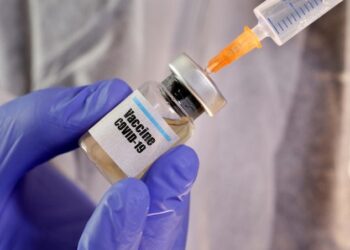There is a strong indication that the drug maker, AstraZeneca, is racing to adapt its Covid-19 vaccine in the face of new variants of the virus as South Africa suspends its formal rollout of the vaccines.
This became necessary as the small-scale study found out that it was less effective at protecting against the more virulent strain discovered in South Africa.
South Africa has recently suspended its rollout plan of the vaccine after it had found that it is less efficient in combatting the new covid variant.
READ: Covid-19: China seizes 3000 fake vaccines, arrests 80
What you should know
It is confirmed that Oxford University has stated that protection against moderate-severe disease, hospitalization or death could not be assessed as the target population were at such low risk
AstraZeneca had commenced a frantic effort at developing second-generation Covid vaccines aimed at targeting new variants of the virus
According to Sarah Gilbert, professor of vaccinology of the University of Oxford which jointly developed the vaccine with AstraZeneca,
- “Efforts are underway to develop a new generation of vaccines that will allow protection to be redirected to emerging variants as booster jabs, if it turns out that it is necessary to do so.
- “We are working with AstraZeneca to optimise the pipeline required for a strain change should one become necessary. This is the same issue that is faced by all of the vaccine developers, and we will continue to monitor the emergence of new variants that arise in readiness for a future strain change.”
READ: AstraZeneca set to buy Alexion for $39 billion
The variant is known as the B.1.351 mutation and was first detected in South Africa in October 2020 and has since become dominant in the country.
Several cases have been found elsewhere too, sending health authorities scrambling to stop the spread of the mutation that is proven to be more infectious.
In the alternative, the South African government will offer vaccines produced by Johnson & Johnson and Pfizer
Pfizer-BioNTech and Moderna have both reported early indications that their vaccines offer protection against new known variants of the virus, those found in South Africa and the U.K.
READ: Why Nigeria may not access COVAX Pfizer vaccines in February
According to Andrew Pollard, professor of pediatric infection and immunity, and chief investigator on the Oxford vaccine trial, in respect of the data from the trials of its vaccine in the U.K, data “indicate that the vaccine not only protects against the original pandemic virus, but also protects against the novel variant, B.1.1.7, which caused the surge in disease from the end of 2020 across the UK.”















.gif)






